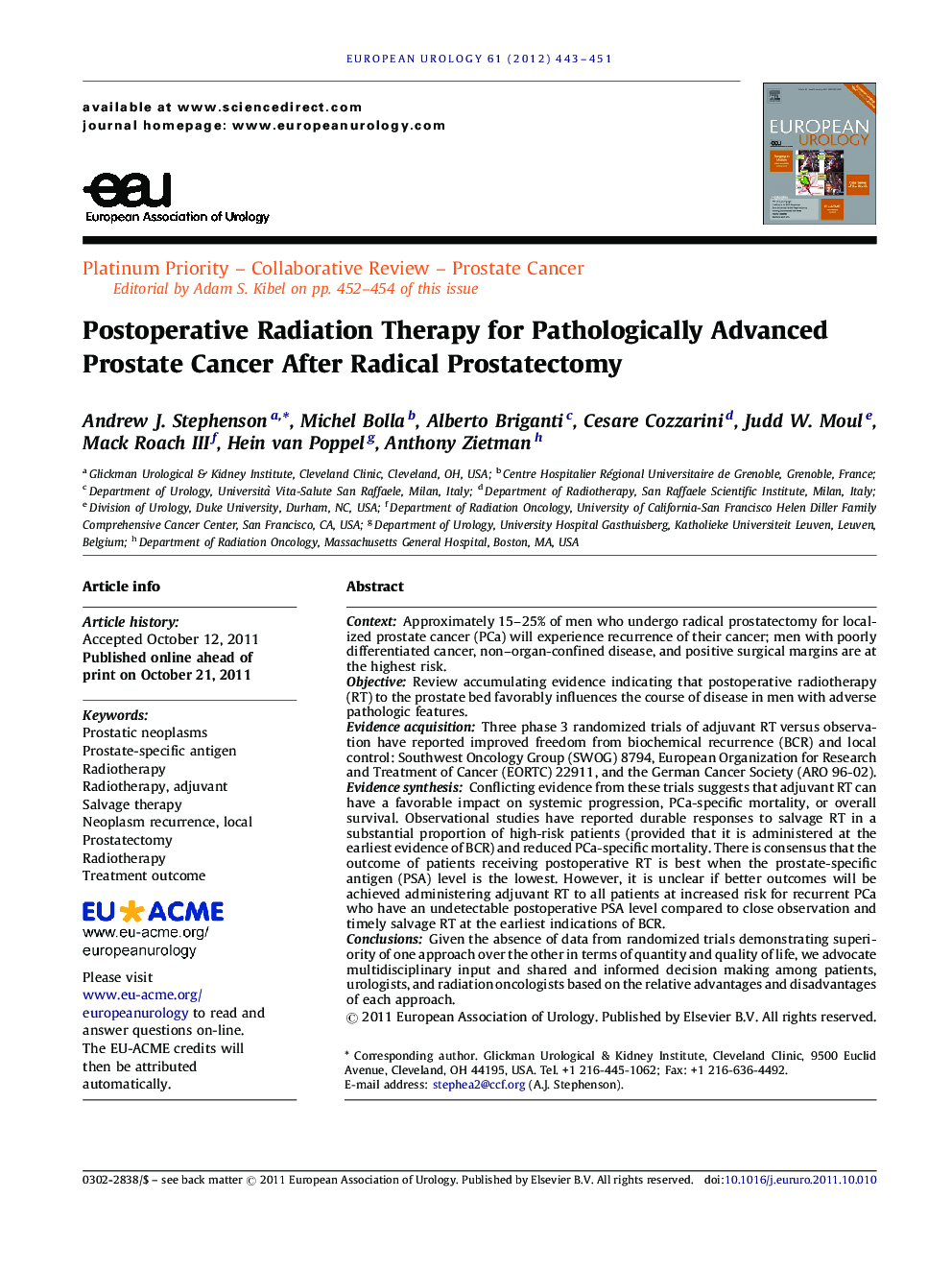| کد مقاله | کد نشریه | سال انتشار | مقاله انگلیسی | نسخه تمام متن |
|---|---|---|---|---|
| 3922821 | 1252988 | 2012 | 9 صفحه PDF | دانلود رایگان |

ContextApproximately 15–25% of men who undergo radical prostatectomy for localized prostate cancer (PCa) will experience recurrence of their cancer; men with poorly differentiated cancer, non–organ-confined disease, and positive surgical margins are at the highest risk.ObjectiveReview accumulating evidence indicating that postoperative radiotherapy (RT) to the prostate bed favorably influences the course of disease in men with adverse pathologic features.Evidence acquisitionThree phase 3 randomized trials of adjuvant RT versus observation have reported improved freedom from biochemical recurrence (BCR) and local control: Southwest Oncology Group (SWOG) 8794, European Organization for Research and Treatment of Cancer (EORTC) 22911, and the German Cancer Society (ARO 96-02).Evidence synthesisConflicting evidence from these trials suggests that adjuvant RT can have a favorable impact on systemic progression, PCa-specific mortality, or overall survival. Observational studies have reported durable responses to salvage RT in a substantial proportion of high-risk patients (provided that it is administered at the earliest evidence of BCR) and reduced PCa-specific mortality. There is consensus that the outcome of patients receiving postoperative RT is best when the prostate-specific antigen (PSA) level is the lowest. However, it is unclear if better outcomes will be achieved administering adjuvant RT to all patients at increased risk for recurrent PCa who have an undetectable postoperative PSA level compared to close observation and timely salvage RT at the earliest indications of BCR.ConclusionsGiven the absence of data from randomized trials demonstrating superiority of one approach over the other in terms of quantity and quality of life, we advocate multidisciplinary input and shared and informed decision making among patients, urologists, and radiation oncologists based on the relative advantages and disadvantages of each approach.
Journal: European Urology - Volume 61, Issue 3, March 2012, Pages 443–451